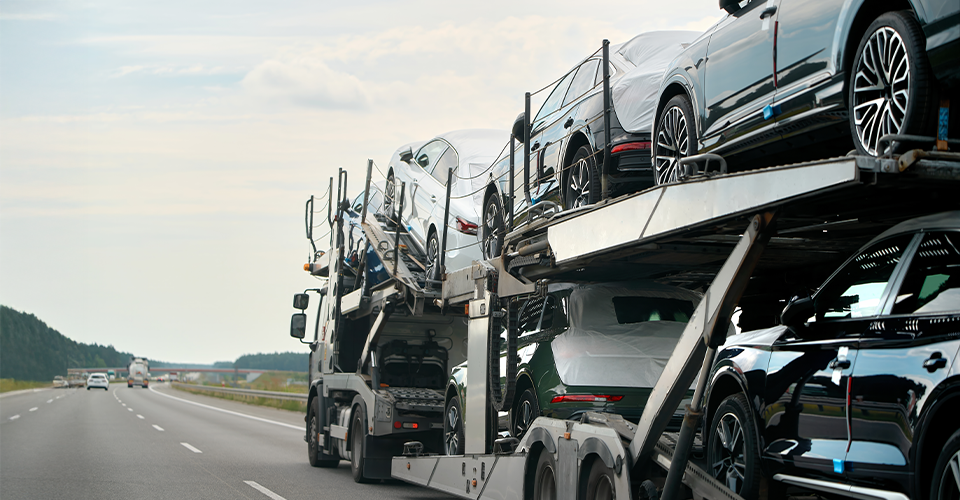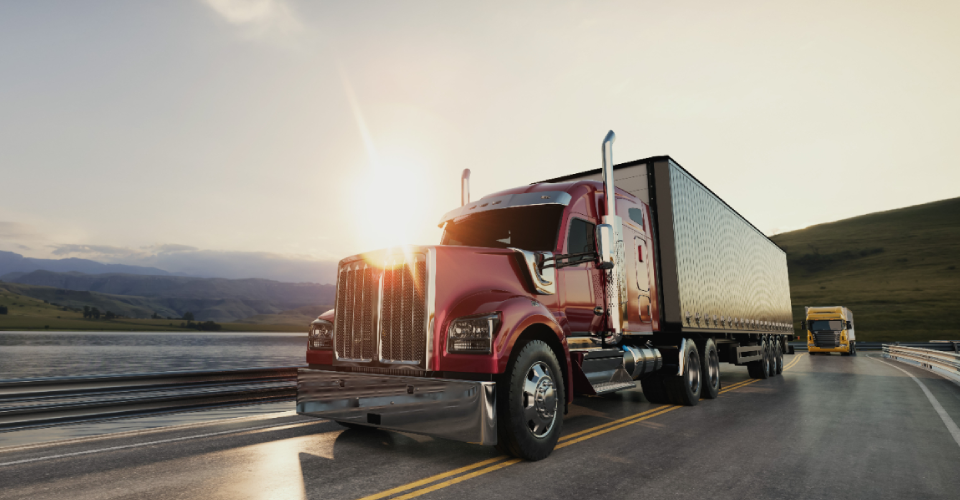If you are wondering how to ship your vehicle for a move, it's imperative to explore the open vs. enclosed car shipping options. Although the auto transport companies use the highest safety standards, it'll be your decision to make a choice between open-air and enclosed trailers.
The specific kind of trailer you decide to use to ship your vehicle will ultimately determine the price of cost of shipping. While there is a wide range of trailers to move your vehicle, most of the time you'll be choosing between either an open car trailer or a closed car carrier.
Even though these two ways of transporting your vehicle do the same job, each of them has its own way of getting it done. Here, we discuss some basic differences between open-air and enclosed trailers along with the respective advantages and disadvantages of each to help you decide which shipping method is best for your budget and your vehicle.
Choosing between open-air and enclosed auto transport
Open-air auto transport

Usually, open auto transport is preferred by many customers because it is both safe and relatively affordable. It makes use of open-air trailers that are usually are available in the following categories:
-
Single vehicle dually truck with a tow: A truck used for short distances.
-
Single level multi-car: Usually ships several cars, especially the heavy utility vehicles.
-
Multi-level multi-car: A double-decker trailer that accommodates multiple cars.
Open-air trailers, as the name suggests, are open on the top and the sides, exposing all of the vehicles on the trailer to the elements. Open-air trailers are typically designed to fit various car sizes, ranging from the small compact models to bigger SUVs. They are often composed of two levels which each carry vehicles, similar to the trucks that you often see on the road transporting new cars to dealerships. These carriers can ship eight to ten cars at a time.
Enclosed auto transport

If you are looking for a safe and reliable way of auto transport, then look no further. Enclosed car carriers are ideal to ship your vehicle safely. You can find the following types of enclosed carriers used for shipping:
-
Single level single car: An enclosed trailer that ships high end vehicles for short distances.
-
Single level multi-car: It usually ships only two cars at a time.
-
Multi-level multi-car: It ships multiple luxury cars at a time.
An enclosed trailer has a roof and four sides which will protect your vehicle from dust, debris, and weather while it is in transport.
The typical enclosed trailer will move two to three cars at a time and tends to be more expensive than most other trailers. Because of the extra protection provided by enclosed auto transport, it is sought after by people who are looking to ship a luxury car or any other high-end vehicle - and this is often reflected in the price it will cost to hire one.
Pros and cons of choosing enclosed trailers
Here's a list of the pros and cons of choosing enclosed trailers for car shipping:
Pros:
-
Enclosed trailers are your best option to fully protect your luxury vehicles from all weather conditions and road debris. Big trucks like auto transport carriers tend to kick up a lot of road debris such as rocks and dust during a long trip. Such debris can potentially damage the exterior of your automobile. But with an enclosed trailer, you won't have to worry about any of that.
-
The enclosed carriers also make use of soft tie-downs and climate control systems to ensure that your vehicle is delivered in the right shape and condition. The climate control system keeps the inside of the trailer at a constant temperature so that it's never too hot or too cold, which is important for people who are having their vehicles transported from a warmer climate to somewhere that is colder or vice versa.
-
Enclosed trailers have lift gates that work as an elevator that lifts your vehicle onto the truck. This helps to avoid any mishaps that can happen while lifting the vehicle onto the trailer, which may often cause scratching, denting, or other damage to the exterior of the automobile if something goes wrong.
-
As these carriers are totally enclosed, they are by far the best way to ship your sports car, convertible or any other vehicle with exposed interiors. Also, any classic or antique vehicles should probably be shipped using an enclosed carrier solely because their value and appeal are largely based on them being in good condition. It's better to be safe when transporting such vehicles and not expose them to the elements of the open road.
Cons:
-
Shipping your vehicle on an enclosed trailer is extremely expensive. Because of these typically high costs that are often associated with the service, it is not as readily accessible to the average person who is looking to transport one or two family cars to their new home.
-
Another potential downside with choosing enclosed carriers for your car shipping is the lack of visibility. The driver has to keep a check on the vehicles loaded on the trailer because they are not accessible easily as the carrier is completely enclosed.
-
While this may not be a disadvantage for you personally, enclosed trailers, because of their bulkier size and climate-controlled interior, tend to use more fuel, which not only raises the cost but also causes more harm to the environment than regular open-air carriers.
Pros and cons of choosing open-air trailers
Here's a list of the pros and cons of choosing open-air trailers for car shipping:
Pros:
-
With the more common open-air auto transport carriers, you can find quick shipping services at low prices, something that just isn't possible with enclosed trailers. While you normally have to reserve an appointment for an enclosed trailer months in advance, it's easier to secure a spot on an open-air trailer on short notice. And their services tend to be a lot more flexible, which is especially important given the uncertain and rapidly changing schedules that often come with a hectic move.
-
With the help of open-air carriers, you can ship any type of vehicle, no matter how expensive it is. From your beat-up 20-year-old four-door sedan to your brand-new luxury SUV, anything and everything can be transported on an open-air carrier - and at a much cheaper rate than an enclosed trailer.
-
The biggest advantage of moving your vehicle(s) on an open-air trailer is that you can transport a whole group of vehicles at one time. While most enclosed trailers only have room for a few cars at most, with open auto transport you can fit up to 8-10 cars on a trailer at one time. This means if you're a family with multiple cars, you can have them all moved in one shot, instead of hiring multiple trailers and multiple services to get the job done.
-
In turn, open-air carriers will not only save you a lot of money on your moving costs, but they'll also help you by using less fuel to transport the same number of vehicles.
-
Finally, open-air trailers are a lot more common in the auto transport industry than enclosed trailers; thus, they are much easier to find and much easier for the average person to book. They are readily available at every auto transport company and can provide immediate service to you and your vehicles as you get ready to make your move.
Cons: